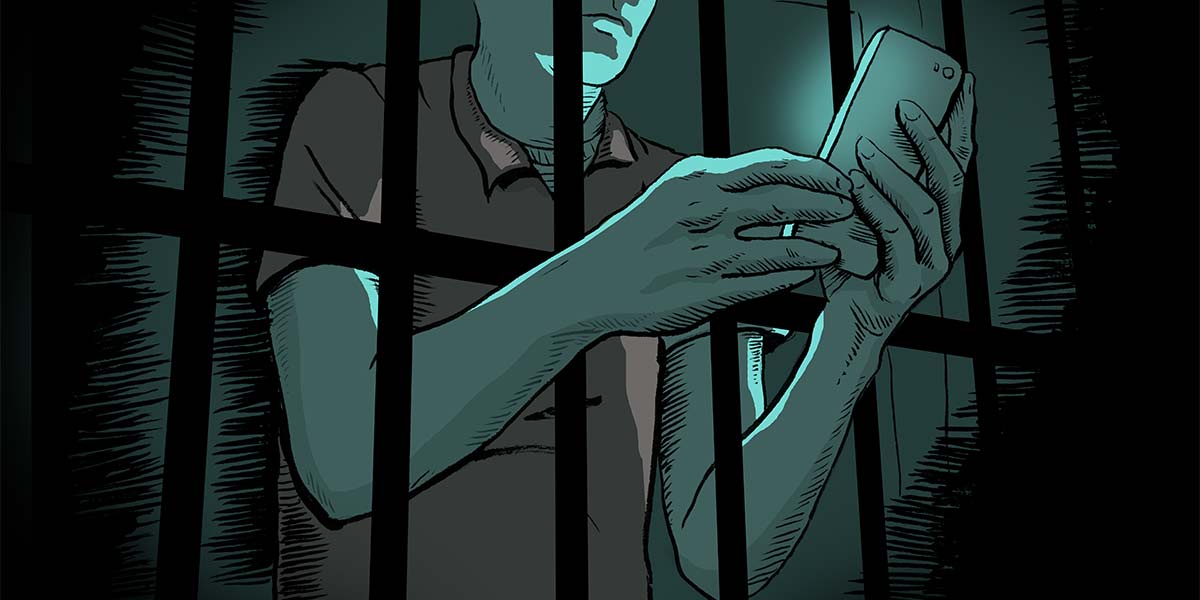Saeed Malekpour crossed the border from Iran to Turkey at night, terrified of capture. He was fleeing from the country that had held him prisoner for a decade, escaping with just a backpack into one of the most chaotic regions of the world. Malekpour was a Canadian web developer who had spent over a decade barely surviving in Iranian jail. He had survived an inexplicable arrest on a trip to Tehran, torture at the hands of that country's secret police, forced public confessions, an arbitrary death sentence and a last-minute reprieve, and years serving a subsequent life sentence in Evin prison—including nursing himself from a heart attack with little more than painkillers from his captors.
The last time Malekpour had crossed a border was when he traveled from Canada to Iran to visit his sick father in 2008—only to be seized off the street by armed agents of the Revolutionary Guard. This year, finally allowed a few days’ furlough out of prison, he set out to escape with the help of human rights groups, supporters outside Iran, and some assistance from the Canadian government. Finally, safe at last in his home in Vancouver in August, he told reporters what he had been told then by his captors shortly after his detention:
They said ‘we were looking for somebody and we chose you because you’re a web developer. People use your programs (to distribute pornography.) Western countries are behind those porn sites.’
You can read here about Saeed's amazing escape – and the tireless work of his sister Maryam Malekpour and human rights activist Maryam Nayeb Yazdi that led to his freedom.
Saeed is just one of the stories in our Offline case files: one that we can thankfully now move to “inactive”. Others are not so lucky. There are the technologists and Internet users who have spent years in jail for unjust reasons connected to their use of technology, as well as those who are only beginning their fight for freedom in 2019. Some have briefly tasted liberty this year, then had it snatched away.
All of them are innocent, and all of them have suffered because of the ignorance and fear of technology—and its users—by those in power.
Ola Bini is another coder whose fate this year was unjustly ground up in the mill of unconnected national politics. As we've documented in the last six months, Bini—a Swedish citizen who works on open source secure software in Ecuador—was seized at Quito airport in April, and held in solitary confinement for weeks following a government panic about “Wikileaks hackers” targeting the Ecuadorian state. As the political situation in that country has deteriorated, his case remains in limbo, even as digital and human rights groups around the world protest his unwarranted prosecution.
Our 2019 report on Alaa Abd-El Fattah should have been a far happier one. Repeatedly thrown into Egyptian jails for his blogging and activism during the turbulent times during and after the Arab Spring, Alaa was finally due for release in April of this year. But his freedom was deliberately and maliciously curtailed. Like his fellow activist, Wael Abbas, Alaa was required to observe a curfew, and return to his jailers every night. In September, he was abruptly re-arrested in a new crackdown on dissent in Egypt, and tortured by his captors. This new detention is as arbitrary and vicious as his first, and continues to blight the life of one of the country's brightest political thinkers, bloggers, and technologists.
Professor Eman Al-Nafjan, the Saudi blogger and women's rights activist, has also been caught between prison and a weak and tenuous freedom. A long-time activist who successfully campaigned for Saudi women's right to drive, Al-Nafjan disappeared into the Saudi prison system just before the ban on driving was lifted in 2018. She finally appeared in court in March this year. There, she and her fellow prisoners were not permitted lawyers, nor allowed to defend themselves. They were told their sentences would be based on confessions that they denied ever providing. Al-Nafjan was freed in March 2019, but is still recovering from the interrogations and sexual assault she suffered in jail, and remains forbidden to leave Saudi Arabia. In September, she was awarded Reporters San Frontiere's Press Courage Award, which was collected in Berlin in her absence by her former student Omayma al-Najjar.
In the United Arab Emirates, blogger Ahmed Mansoor continues to protest from solitary confinement his ten year sentence for "committing cybercrimes"—despite a growing body of evidence demonstrating that it was he who has been the victim of a campaign of criminal high-tech surveillance and harassment by the U.A.E. authorities. This year, Reuters publishing multiple in-depth exposes demonstrating how American surveillance experts, previously employed by the National Security Agency, were hired by the U.A.E. to hack and spy on domestic opponents and human rights advocates—including Mansoor and his wife. Held in isolation in appalling conditions, he has gone on hunger strike at least twice during this year: his supporters worry for his long-term health.
These are just a few of the stories from around the world that we've tracked in Offline. They speak to the continuing targeting of those who build technology, or use it to speak to the world. Some of them are just beginning their battles for freedom; others have managed to escape their injustice with the support of their friends and families; and yet more are caught between two worlds—the better world that offers the promise of human rights protected through technology, and of truly free expression; and the world of surveillance, harassment, and imprisonment, unjustly brought upon those who work to fulfill that promise.
This article is part of our Year in Review series. Read other articles about the fight for digital rights in 2019.
Like what you're reading? Support digital freedom defense today!













